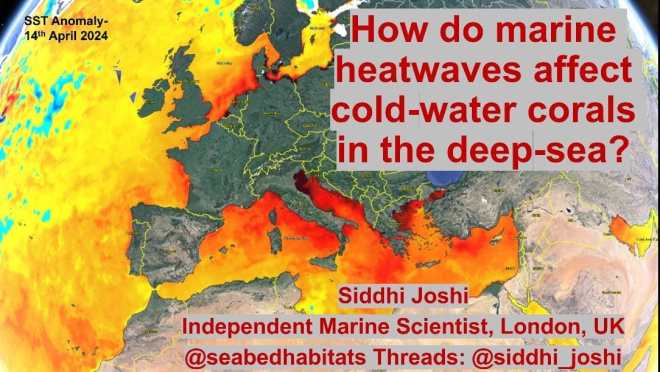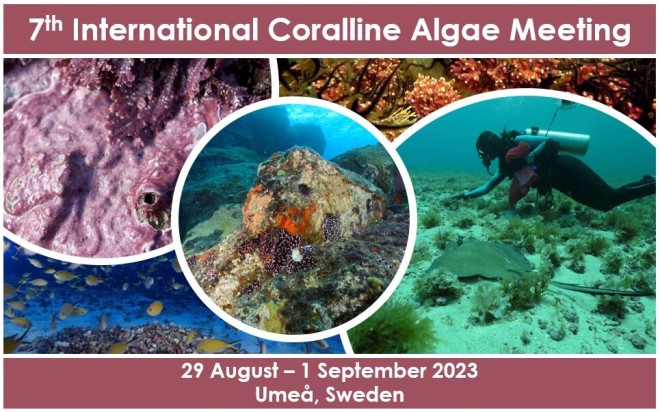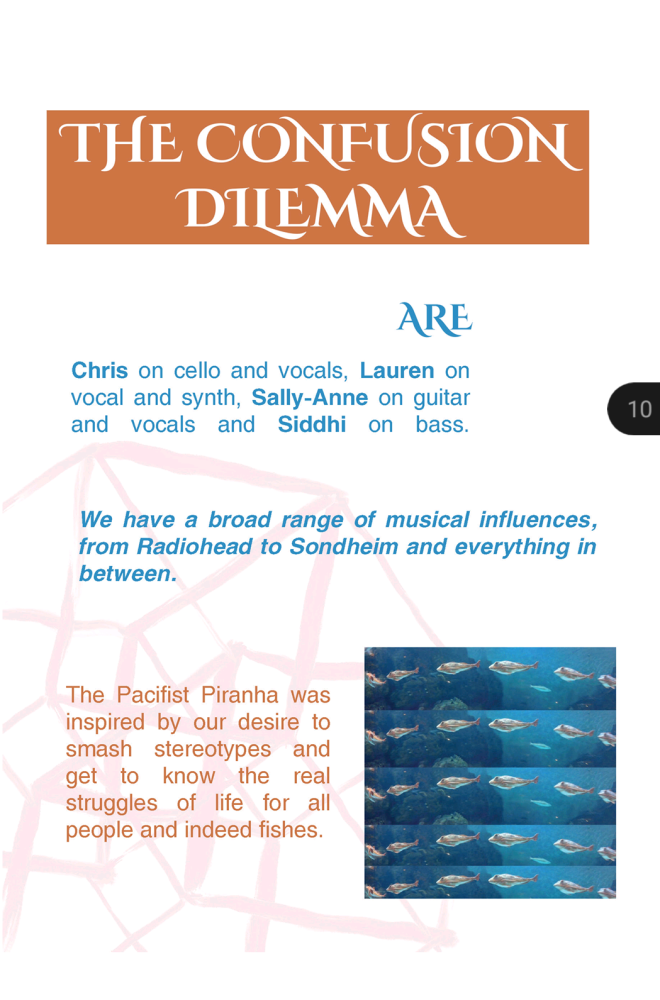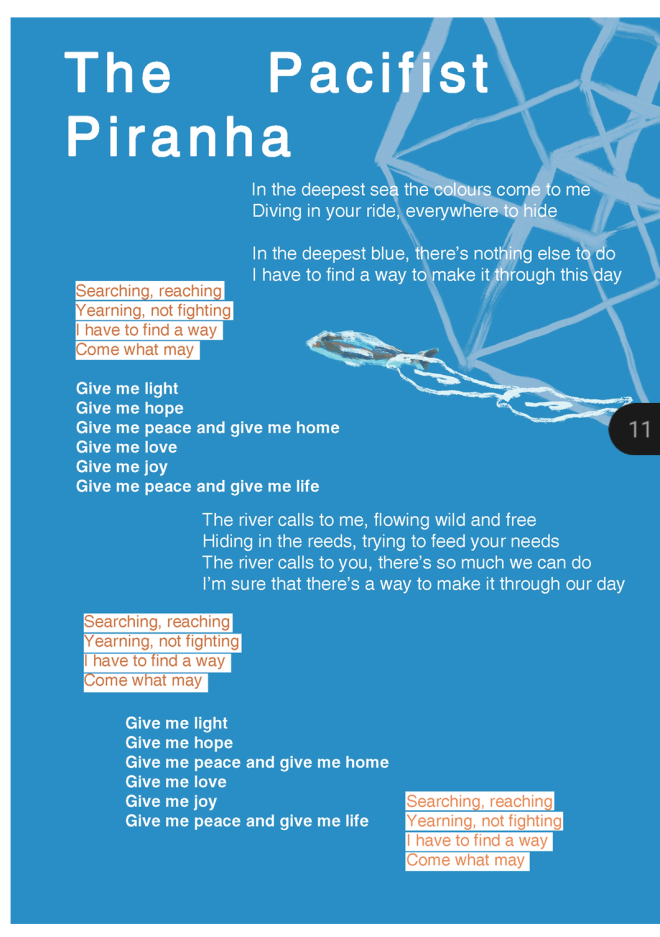Ocean temperature plays an important role in governing the biophysical environment and in turn the realized ecological niche of benthic organisms and the distribution of marine habitats in the global ocean. As a result of anthropogenic-induced climate change Marine Heat Waves (MHWs) have resulted in widespread coral bleaching and mass mortality of tropical corals. Comparatively little is known about the impact of sub-surface MHWs on cold-water coral communities in the deep-sea, which lack the dependence on symbiotic zooxanthellae of their tropical cousins in surface waters. This study aims to address this deep-ocean knowledge gap utilising numerical modelling.
Previous studies have shown that prolonged and intense sub-surface MHWs and their cumulative intensity results in increasing thermal stress encountered by benthic organisms in depths down to 2000m. This study utilises hydrodynamic modelling outputs of reanalysis data to study impacts of sub-surface MHWs on cold-water corals. With intensification and duration of sub-surface MHWs predicted to rapidly increase in this century, it will increase the thermal stress experienced by cold-water corals and associated communities in the deep-sea.
It is hypothesized that through increased stratification and increased mixed layer depth due to increased storminess and deepening of the thermocline, cold-water coral distribution will be impacted physically (mechanically), however their mortality is more likely to be dependent on food availability and oxygen supply. Preliminary results support this hypothesis in the North Atlantic, indicating that although the cold-water corals may be resilient to thermal stress physiologically, the resulting physically dynamic environment will lead to secondary impacts at the local scale in the benthic boundary layer. Furthermore, oxygen saturation has been found to decrease with increasing temperature and is likely to have a secondary impact on cold-water coral health. This study demonstrates how numerical modelling can provide quantitative spatial and temporal information of biophysical interactions to inform marine habitat mapping studies and species distribution models of habitat suitability.
(Background: This is my research abstract made for the GeoHab 2024 conference – if you would like to learn more, my short oral presentation will be happening on Thursday 9th May 2024 at 1415 in Arendal, Norway. More information about the conference, including how to be a virtual participant, on the official conference website. An interesting program!) See also: https://www.marineheatwaves.org

New update: Marine Heat Waves Shiny App!!





